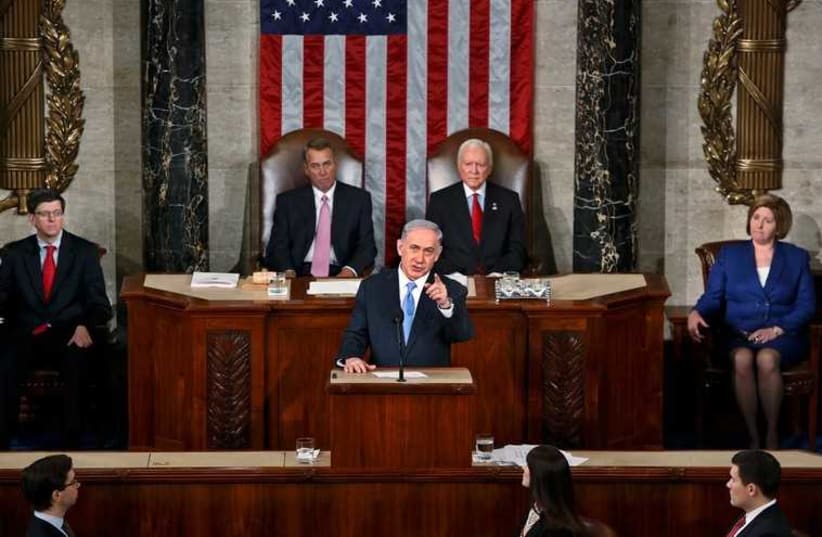See the latest opinion pieces on our page
First and foremost was the sunset clause, which essentially legitimates Iran’s nuclear weapons program within 10 years, with perhaps a five-year phase-out period tacked on. This, rightly noted Netanyahu, might seem like a long time in politics but is the blink of an eye in the lives of nations or for our children.He also criticized the seeming willingness on the part of P5+1 nations to allow the Iranians to maintain a substantial uranium and plutonium enrichment infrastructure of thousands of centrifuges.He pointed out that it was wrong not to include in the deal with Iran a ban on the development of intercontinental ballistic missiles, whose only purpose is to deliver a payload of nuclear warheads – and do so as far away as America.But more than voicing criticism of a bad nuclear deal with Iran, which would inevitably lead to nuclear proliferation in the region and most likely war, Netanyahu also provided a vision for moving forward. He did not simply trash the deal and leave no room for negotiations. He held onto the ideal of a peaceful resolution of the conflict via a negotiated deal with Iran.No country more than Israel has a stake in seeing a peaceful resolution of the conflict with Iran, because Israel would suffer if the situation deteriorates into a military conflagration.Since sanctions were what brought the Iranians to the bargaining table in the first place, Netanyahu proposed not lifting sanctions until the Iranians stop their aggression.Indeed, premature lifting of sanctions would actually encourage Iranian aggression. And sanctions can be particularly effective now, as oil prices have fallen to their lowest level in decades.Only once the Iranians have stopped supporting terrorism around the world from Buenos Aires and Burgas to Baghdad and Beirut; only once they stop threatening the annihilation of Israel; only once they stop demonstrations of aggression against the US like last week’s staged attack on a replica US aircraft carrier can the P5+1 be expected to reduce sanctions.“If Iran wants to be treated like a normal country,” intoned Netanyahu, “it should begin acting like a normal country,” adding that the alternative to a bad deal with Iran does not have to be war, it can be an even better deal.Still, while Netanyahu made it clear that Israelis overwhelmingly prefer a negotiated deal through diplomacy and still hold out hope for a peaceful solution, the renewal of Jewish sovereignty after nearly two millennia of longing means that Israel no longer has to rely on others to defend it.Pointing to Holocaust survivor and Nobel Peace Prize laureate Eli Wiesel, who was sitting next to Sara Netanyahu, the prime minister noted that the man’s life and work gave new meaning to the words “never again.”“And I wish I could promise you, Elie, that the lessons of history have been learned.... But I can guarantee you this, the days when the Jewish people remained passive in the face of genocidal enemies, those days are over.”
Netanyahu’s speech
